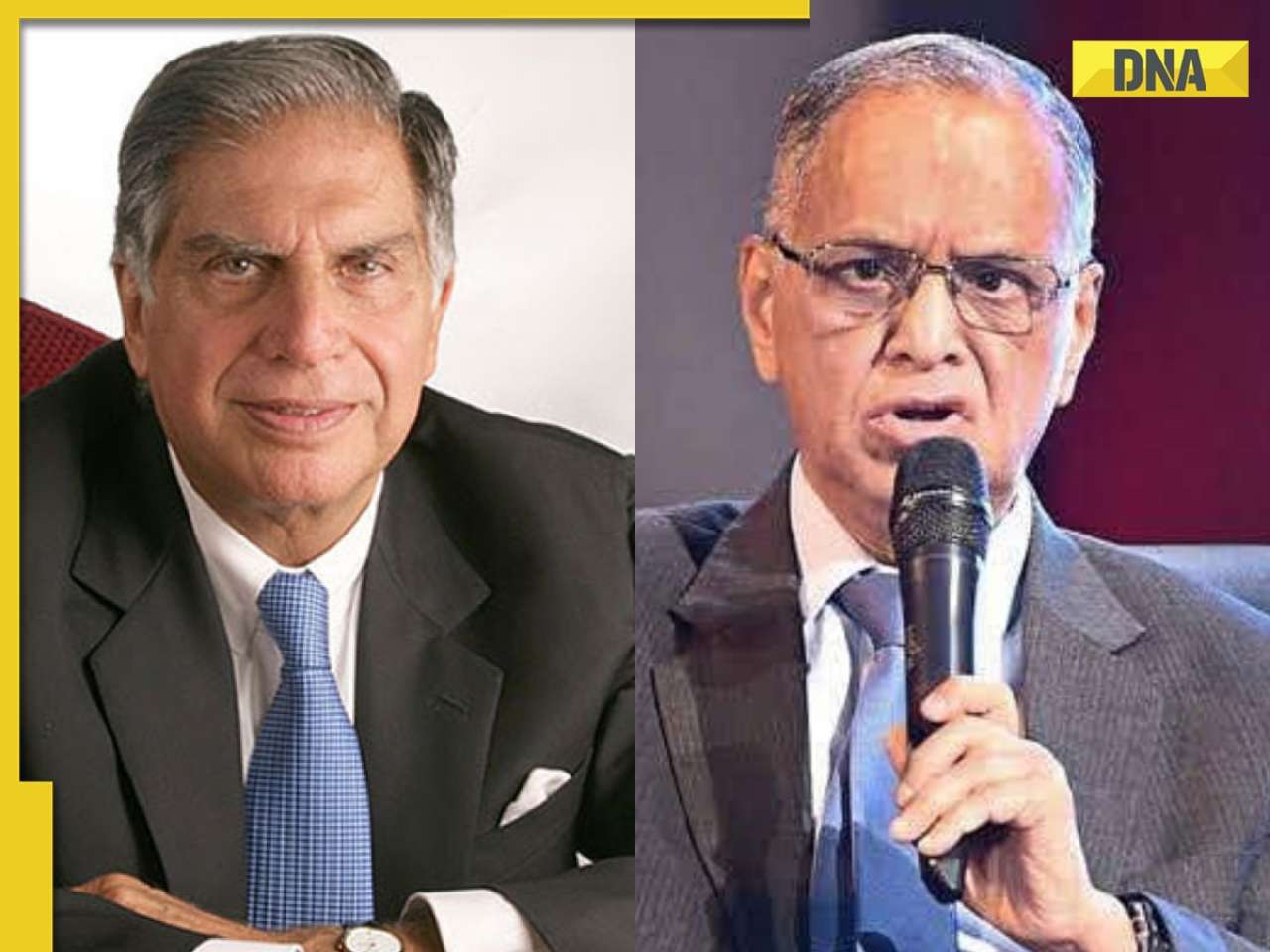With the rise of DevOps and Agile methodologies, ensuring software reliability while maintaining development velocity is a challenge that organizations worldwide strive to overcome.
In the ever-evolving landscape of software engineering and quality assurance, the demand for robust testing frameworks and efficient debugging mechanisms has never been greater. With the rise of DevOps and Agile methodologies, ensuring software reliability while maintaining development velocity is a challenge that organizations worldwide strive to overcome. As technology advances, software testing has transitioned from being a final-stage activity to an integral part of the development cycle, where early defect detection and prevention are crucial to minimizing downtime and improving overall product quality.
Santosh Kumar Jawalkar, with extensive experience in developing and executing test suites for software enhancements, quick fix engineering (QFE), and hotfixes, has made significant contributions to the industry. "My focus has always been on improving testing methodologies and debuggingto optimize software reliability," he shares. His expertise in debugging and optimization has been instrumental in shaping best practices across engineering teams, ensuring that software defects are addressed efficiently.
His role in effectively triaging and performing root cause analysis on reported issues has facilitated faster resolution times. Additionally, his collaboration with engineering and QA teams in debugging critical deployment issues has strengthened the overall software development lifecycle. By utilizing advanced debugging tools and defect tracking systems, he has enhanced the effectiveness of testing procedures, ultimately leading to more stable software releases.
Through proactive monitoring and structured regression testing, Jawalkar has successfully reduced deployment-related incidents by 3%, while software defects decreased by 15%. His efforts have been pivotal in streamlining testing processes, ensuring that defects are identified and resolved early in the pipeline. One of the significant challenges he tackled was overcoming the inefficiencies of manual testing by implementing automated testing frameworks, thereby accelerating development cycles and improving software quality.
In addition to his practical contributions, he enriched the software testing community with his published works. His research on early defect detection, DevOps QA strategies, and machine learning applications in quality assurance has provided valuable insights into modern testing methodologies. Notable publications include "Proactive Software Testing: The Shift-Left Approach to Early Defect Detection and Prevention" (2019), "Accelerating DevOps Success: The Strategic Role of QA in High-Speed Pipelines" (2020), and "Machine Learning in QA: A Vision for Predictive and Adaptive Software Testing" (2021).
Looking ahead, Jawalkar emphasizes the growing importance of integrating debugging practices earlier in the development lifecycle. "Emerging AI tools will soon automate defect classification and prioritization, making triaging faster and more intelligent," he predicts. Furthermore, as QA roles increasingly merge with Site Reliability Engineering (SRE), professionals in the field will need to adapt by gaining expertise in telemetry, logs, traces, and real-time metrics.
Santosh Kumar Jawalkar’s contributions to software testing and debugging have not only improved software quality within his organization but have also influenced industry best practices. His forward-thinking approach and commitment to advancing testing methodologies ensure that as technology evolves, software quality and reliability will remain paramount.
Find your daily dose of All
Latest News including
Sports News,
Entertainment News,
Lifestyle News, explainers & more. Stay updated, Stay informed-
Follow DNA on WhatsApp. Mahavatar Narsimha box office collection day 9: South's animation film beats Saiyaara, Son of Sardaar 2, Dhadak 2 on its 2nd Saturday, earns Rs 68 crore
Mahavatar Narsimha box office collection day 9: South's animation film beats Saiyaara, Son of Sardaar 2, Dhadak 2 on its 2nd Saturday, earns Rs 68 crore IND vs ENG 5th Test Day 3 Highlights: Yashasvi Jaiswal, Washington Sundar shine as India set England mammoth target in Oval thriller
IND vs ENG 5th Test Day 3 Highlights: Yashasvi Jaiswal, Washington Sundar shine as India set England mammoth target in Oval thriller Asia Cup 2025 venues revealed, blockbuster India vs Pakistan to be played at THIS stadium
Asia Cup 2025 venues revealed, blockbuster India vs Pakistan to be played at THIS stadium Kartik Aaryan to attend Independence Day event in USA organised by Pakistani? Actor's team issues statement: 'We have contacted organisers and..'
Kartik Aaryan to attend Independence Day event in USA organised by Pakistani? Actor's team issues statement: 'We have contacted organisers and..' Aamir Khan wasn't original choice for Fanaa, Aditya Chopra didn't want him because.., Hrithik Roshan was offered film, he rejected it saying..
Aamir Khan wasn't original choice for Fanaa, Aditya Chopra didn't want him because.., Hrithik Roshan was offered film, he rejected it saying.. Jeera water vs Saunf water: Which morning drink works better for you?
Jeera water vs Saunf water: Which morning drink works better for you? 8 surprising ways to use orange peel in kitchen
8 surprising ways to use orange peel in kitchen NASA shares 8 breathtaking images of Helix Nebula
NASA shares 8 breathtaking images of Helix Nebula 7 silent signs of bone cancer you should never ignore
7 silent signs of bone cancer you should never ignore
 7 mesmerising star formation images captured by NASA's James Webb Space Telescope
7 mesmerising star formation images captured by NASA's James Webb Space Telescope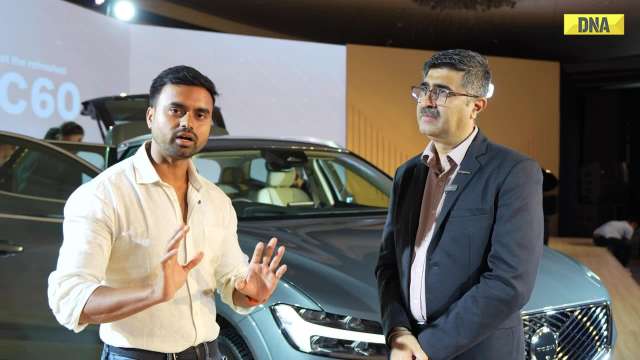 Exclusive: Jyoti Malhotra on Volvo XC60, New Launches & Volvo’s India Strategy | Volvo Car India MD
Exclusive: Jyoti Malhotra on Volvo XC60, New Launches & Volvo’s India Strategy | Volvo Car India MD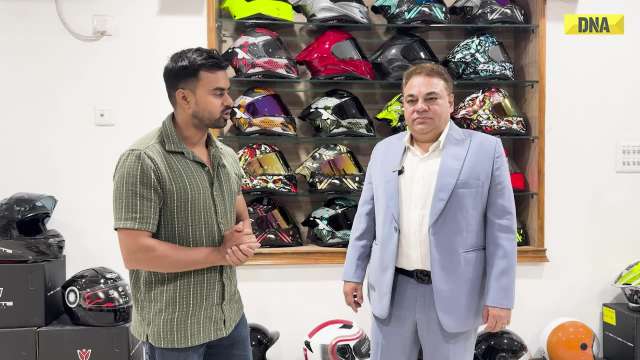 Exclusive Interview: Rajeev Kapur on Steelbird’s New Helmets & Global Strategy!
Exclusive Interview: Rajeev Kapur on Steelbird’s New Helmets & Global Strategy!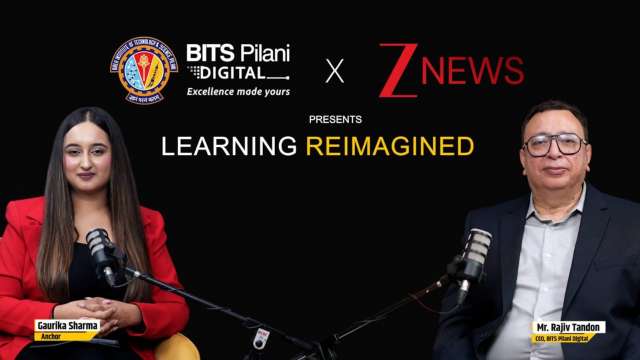 Futuristic Education: AI or Natural Intelligence, What's in focus? | Rajiv Tandon, BITS Pilani Digital
Futuristic Education: AI or Natural Intelligence, What's in focus? | Rajiv Tandon, BITS Pilani Digital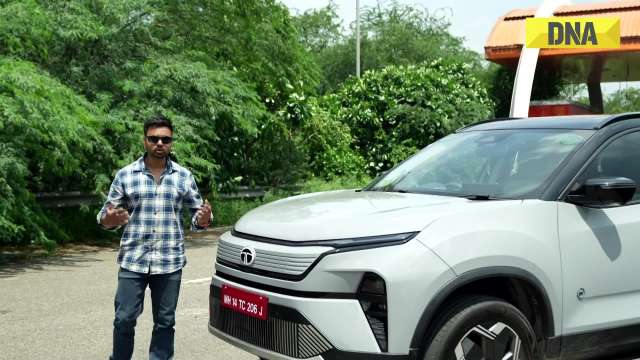 Tata Harrier EV Review | Most Advanced Electric SUV from Tata?
Tata Harrier EV Review | Most Advanced Electric SUV from Tata? Vida VX2 Plus Electric Scooter Review: Range, Power & Real-World Ride Tested!
Vida VX2 Plus Electric Scooter Review: Range, Power & Real-World Ride Tested!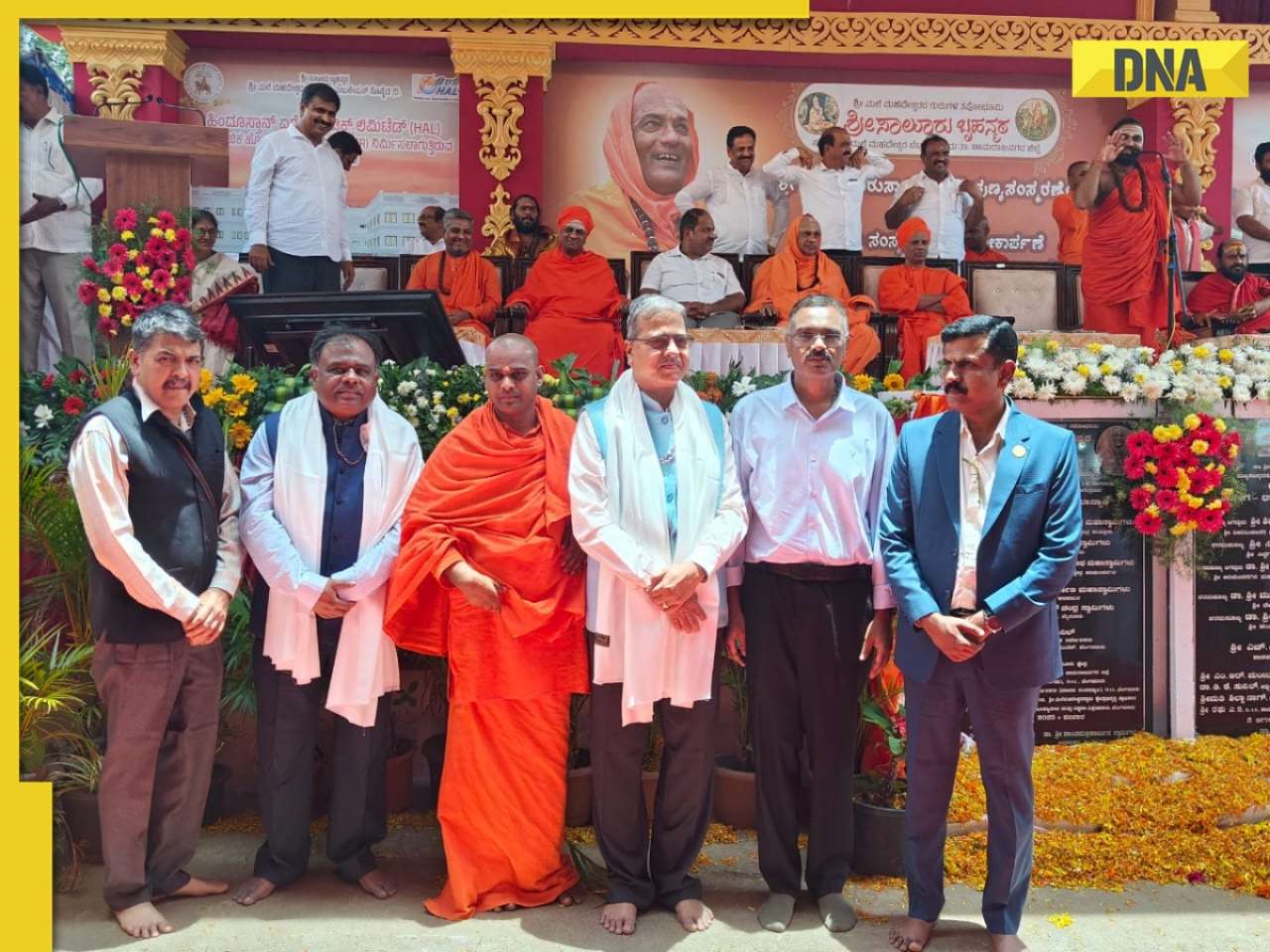 HAL signs historic Rs 4.77 crore education MoU at Salur Math in MM Hills Karnataka
HAL signs historic Rs 4.77 crore education MoU at Salur Math in MM Hills Karnataka  Meet Indian-origin richest man in Indonesia, with net worth of Rs 725000000000, brother-in-law of India's famous billionaire, his business is...
Meet Indian-origin richest man in Indonesia, with net worth of Rs 725000000000, brother-in-law of India's famous billionaire, his business is... ED issues Look Out Circular against Anil Ambani in Rs 17,000 crore bank loan fraud case
ED issues Look Out Circular against Anil Ambani in Rs 17,000 crore bank loan fraud case BIG move by BSNL as it rolls out new plan for just Re 1; check validity, offer, data limit and more
BIG move by BSNL as it rolls out new plan for just Re 1; check validity, offer, data limit and more Elon Musk's Tesla set to open 1st charging station in India on...; check charging speed, price
Elon Musk's Tesla set to open 1st charging station in India on...; check charging speed, price Preity Zinta’s go-to fitness formula for staying lean and active at 50, 'It does not matter how long...'
Preity Zinta’s go-to fitness formula for staying lean and active at 50, 'It does not matter how long...' Liked Kingdom? Don’t miss these 5 Vijay Deverakonda films that showcase his versatility
Liked Kingdom? Don’t miss these 5 Vijay Deverakonda films that showcase his versatility Before watching Vijay Deverakonda’s Kingdom, know 5 box office hits he said NO to
Before watching Vijay Deverakonda’s Kingdom, know 5 box office hits he said NO to Pooja Batra’s monokini look is blend of tropical vibes and monsoon style inspiration; SEE PICS
Pooja Batra’s monokini look is blend of tropical vibes and monsoon style inspiration; SEE PICS Taarak Mehta Ka Ooltah Chashmah star Deepti Sadhwani’s simple diet plan helped her lose 17 Kg in 6 months: Here’s how she did it
Taarak Mehta Ka Ooltah Chashmah star Deepti Sadhwani’s simple diet plan helped her lose 17 Kg in 6 months: Here’s how she did it Centre's BIG statement on F-35 fighter jets deal with US, says, 'No formal discussions...'
Centre's BIG statement on F-35 fighter jets deal with US, says, 'No formal discussions...'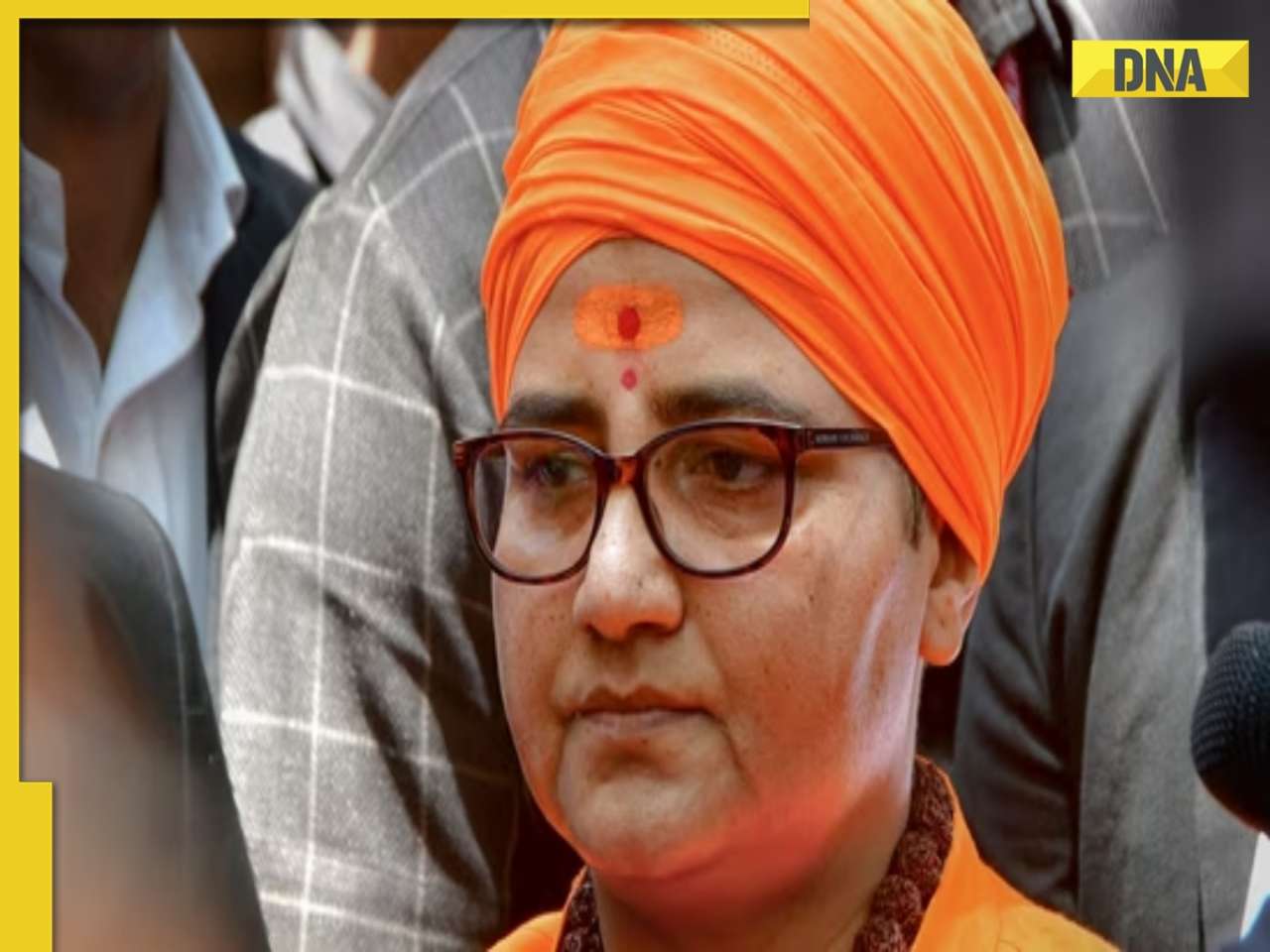 Pragya Thakur's SHOCKING claim on Malegaon blast case, says, 'was forced to take names of...'
Pragya Thakur's SHOCKING claim on Malegaon blast case, says, 'was forced to take names of...'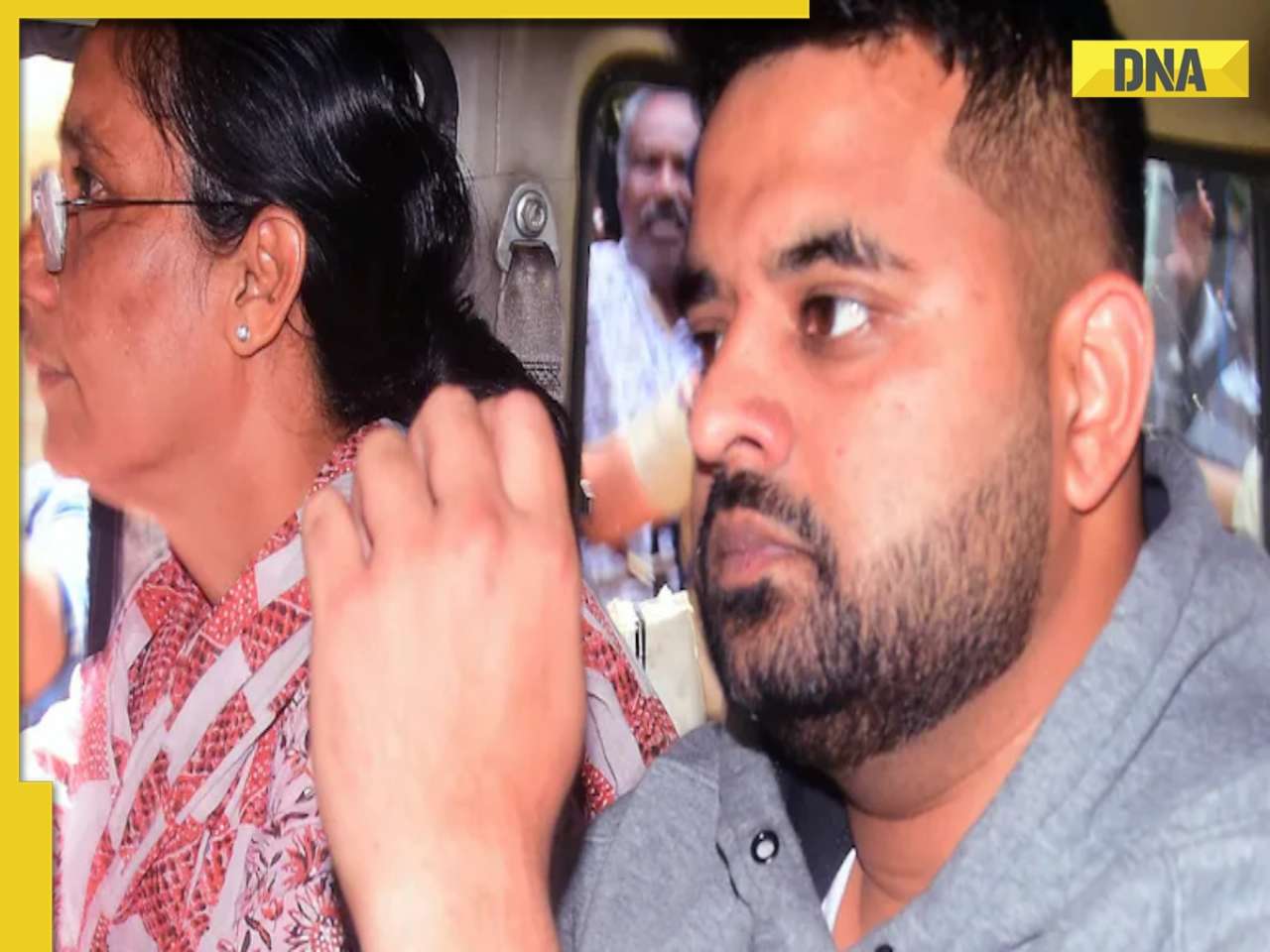 Former JDS MP Prajwal Revanna sentenced to life imprisonment for sexually assaulting house help
Former JDS MP Prajwal Revanna sentenced to life imprisonment for sexually assaulting house help Former Jharkhand CM Shibu Soren critical, on ventilator: Reports
Former Jharkhand CM Shibu Soren critical, on ventilator: Reports  Rahul Gandhi alleges NDA government sent late Arun Jaitley to 'threaten' him over farm laws, introduced a year after his death; son Rohan Jaitley reacts
Rahul Gandhi alleges NDA government sent late Arun Jaitley to 'threaten' him over farm laws, introduced a year after his death; son Rohan Jaitley reacts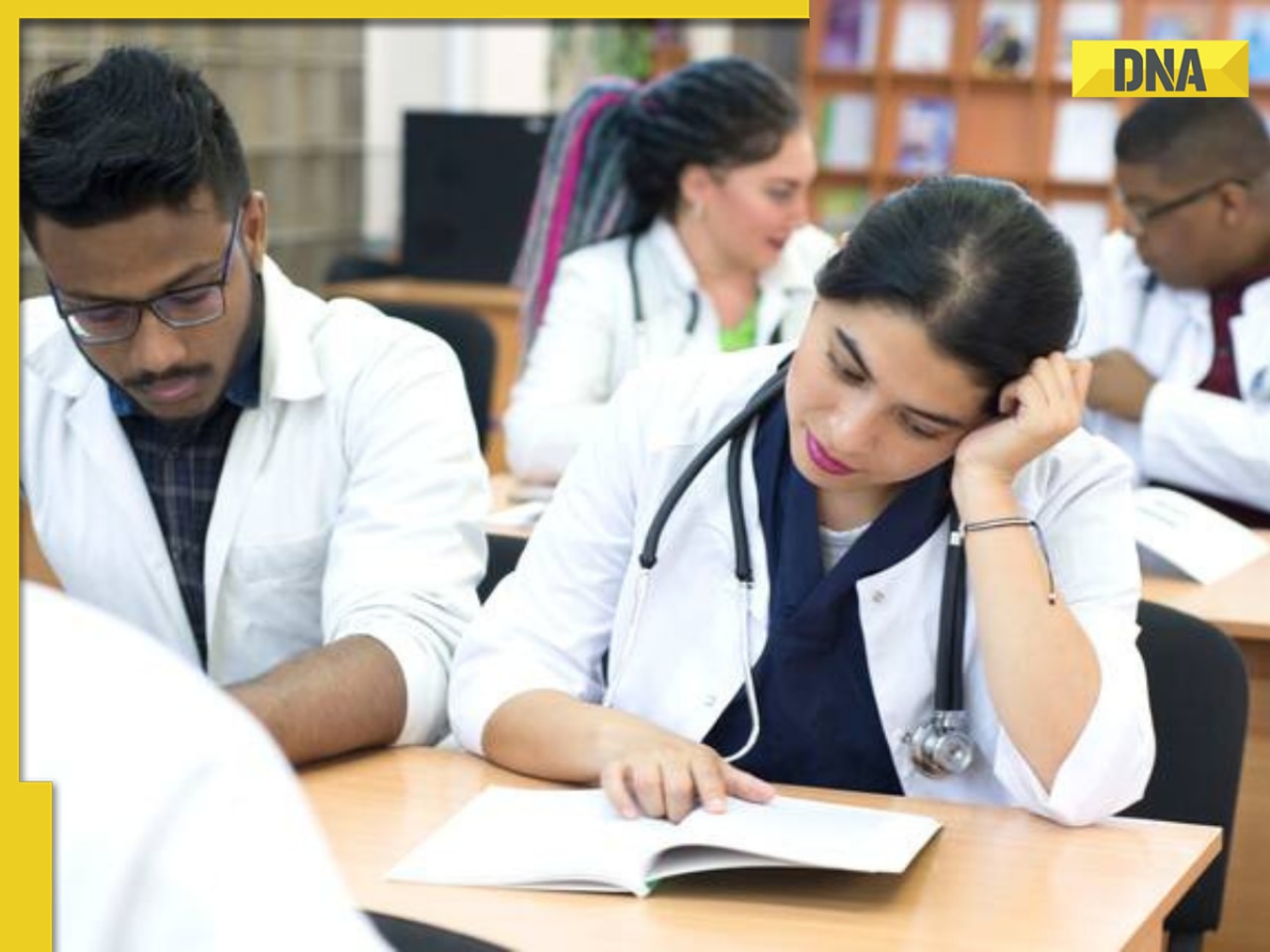 Over 2800 MBBS seats go unfilled in 2024 despite 39% rise due to...
Over 2800 MBBS seats go unfilled in 2024 despite 39% rise due to...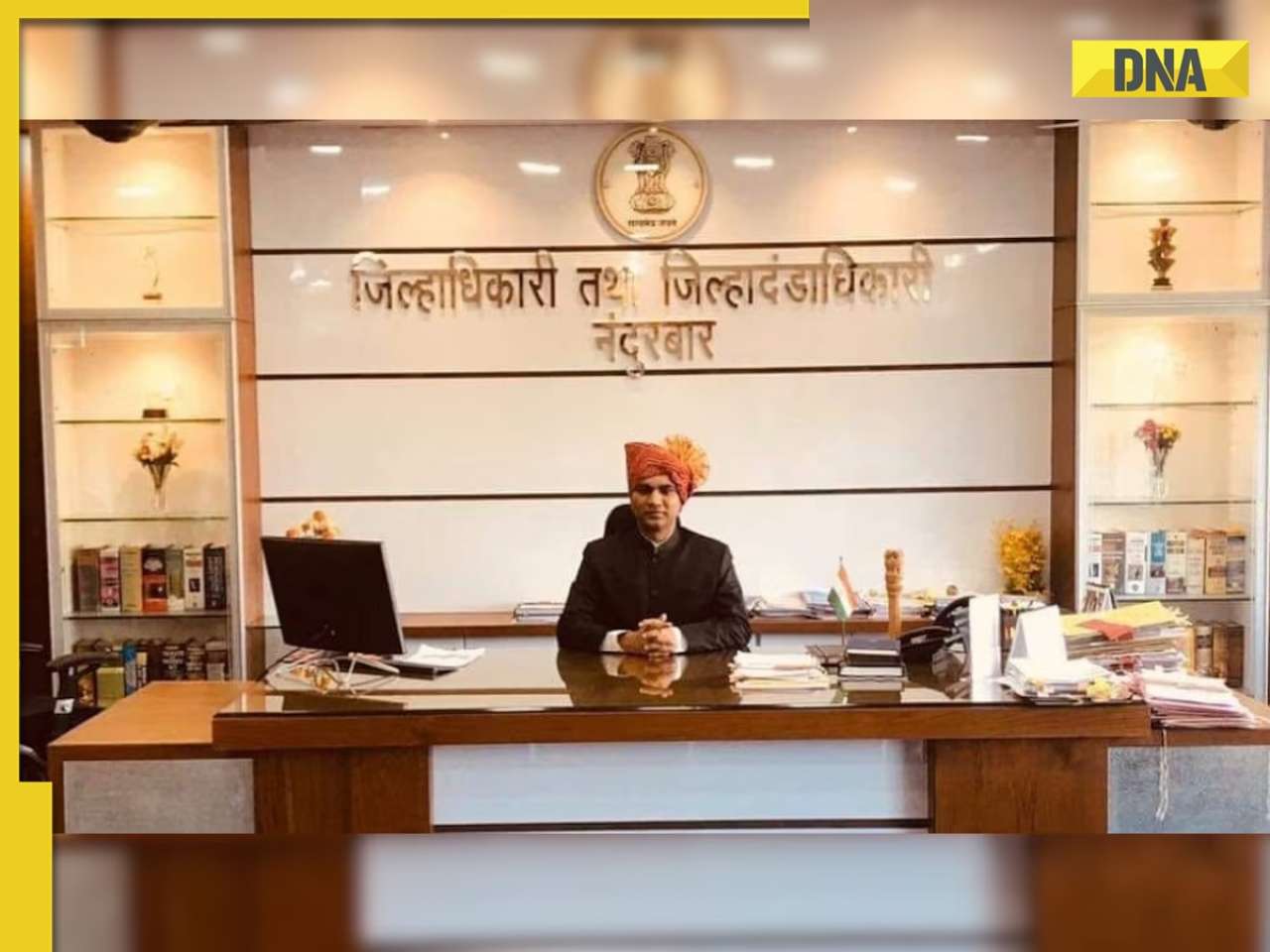 Meet IAS officer, whose mother used to sell desi wine, studied MBBS, later cracked UPSC with AIR..., he is...
Meet IAS officer, whose mother used to sell desi wine, studied MBBS, later cracked UPSC with AIR..., he is... Meet woman, NLU grad, who left her job at legal firm, topped UPSC exam in second attempt with AIR..., her backup plan was...
Meet woman, NLU grad, who left her job at legal firm, topped UPSC exam in second attempt with AIR..., her backup plan was... Meet woman who left medical studies to fulfill father’s wish, cracked UPSC exam, became IPS, then IAS officer after failing thrice, her AIR is...
Meet woman who left medical studies to fulfill father’s wish, cracked UPSC exam, became IPS, then IAS officer after failing thrice, her AIR is...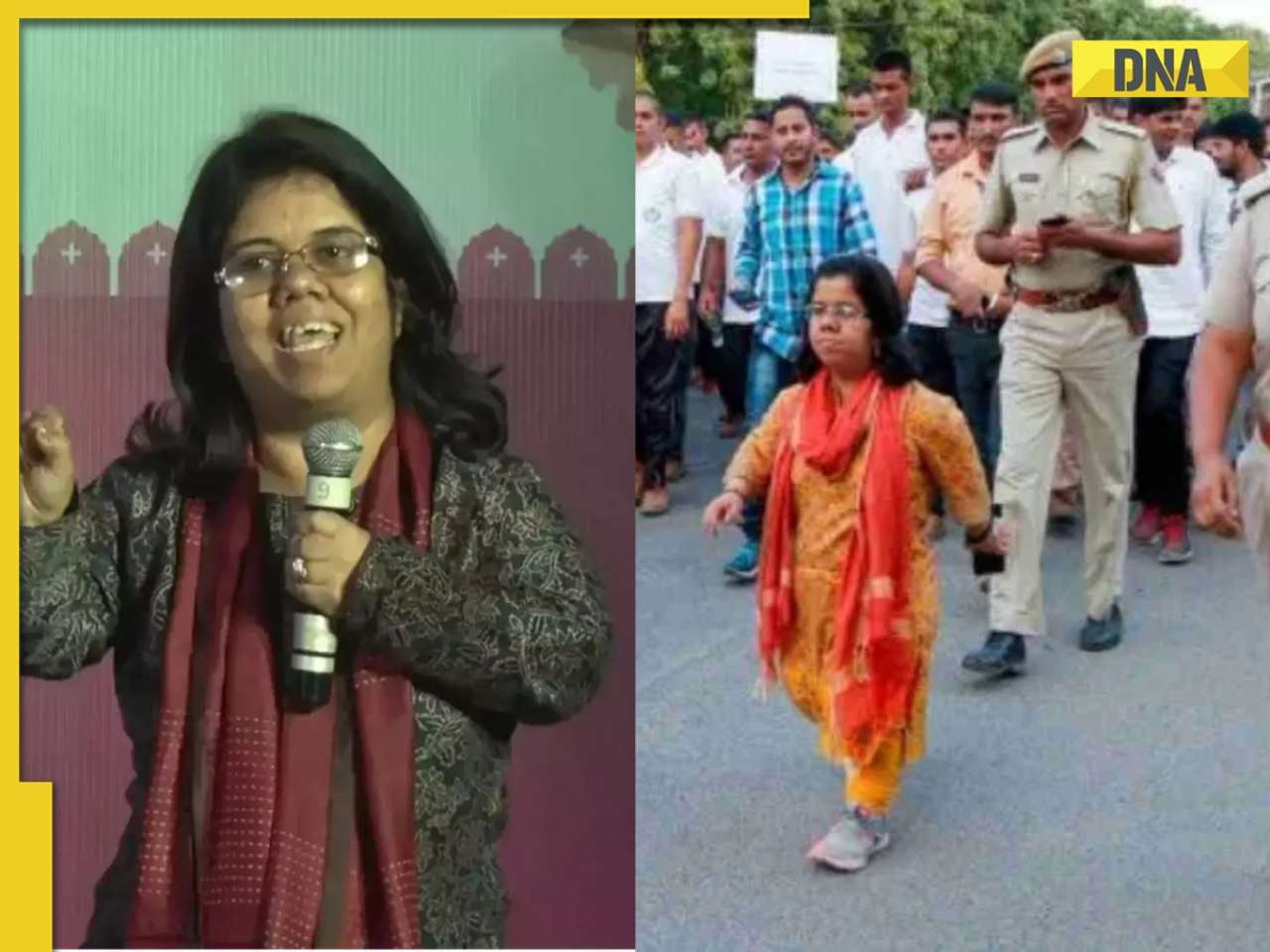 Meet woman, 3.5 feet tall IAS officer who was once made fun of, later graduated from DU, cracked UPSC exam on her first attempt, she is...
Meet woman, 3.5 feet tall IAS officer who was once made fun of, later graduated from DU, cracked UPSC exam on her first attempt, she is... Maruti Suzuki's e Vitara set to debut electric market at Rs..., with range of over 500 km, to launch on...
Maruti Suzuki's e Vitara set to debut electric market at Rs..., with range of over 500 km, to launch on... This is world’s most expensive wood, cost of 1kg wood is more than gold, its name is..., is found in...
This is world’s most expensive wood, cost of 1kg wood is more than gold, its name is..., is found in... This luxury car is first choice of Indians, even left BMW, Jaguar, Audi behind in sales, it is...
This luxury car is first choice of Indians, even left BMW, Jaguar, Audi behind in sales, it is... Kia India unveils Carens Clavis: Check features, design changes, price and more; bookings open on...
Kia India unveils Carens Clavis: Check features, design changes, price and more; bookings open on... Tesla CEO Elon Musk launches most affordable Cybertruck, but it costs Rs 830000 more than older version, it is worth Rs...
Tesla CEO Elon Musk launches most affordable Cybertruck, but it costs Rs 830000 more than older version, it is worth Rs...




)
)
)
)
)
)
)
)
)
)
)
)
)
)
)
)



